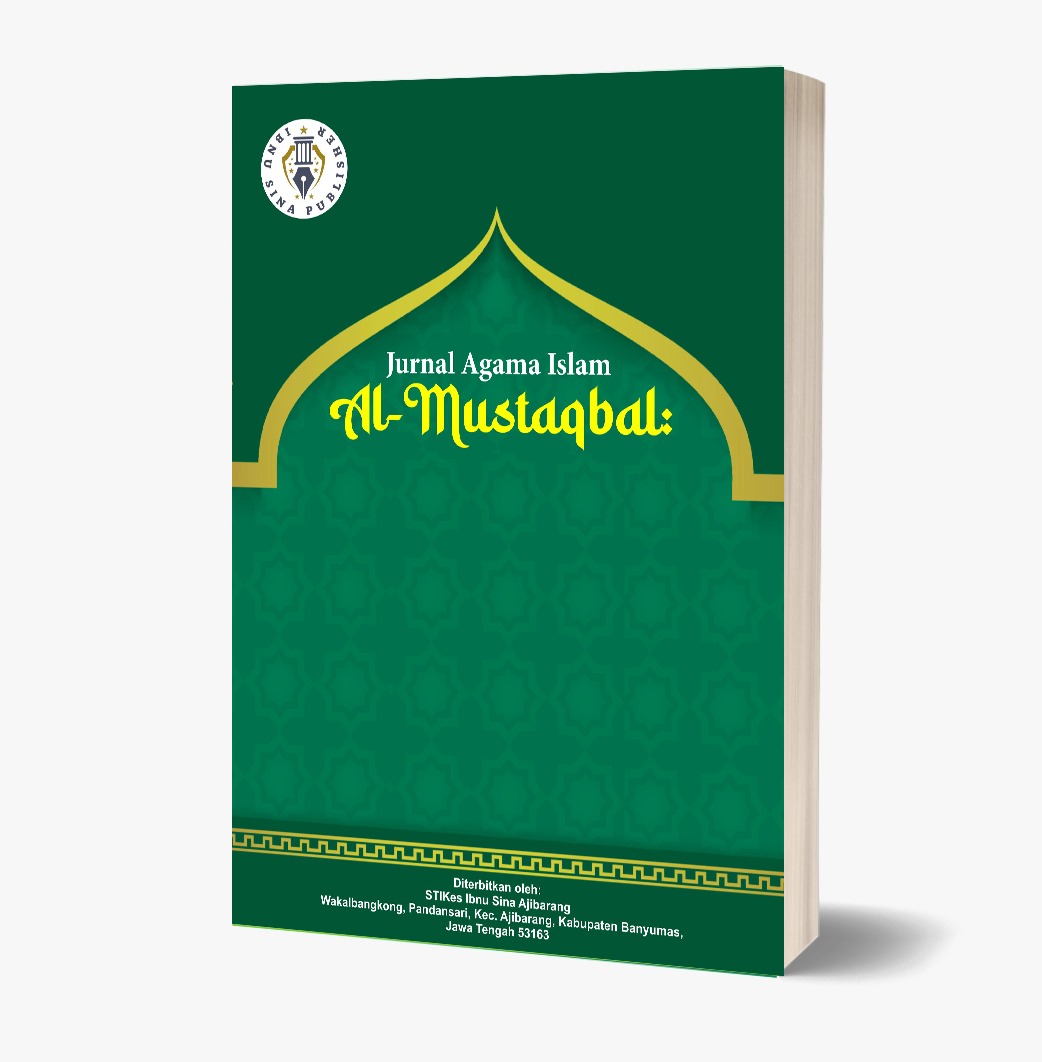Konsep Pemikiran Islam Masa Mutakhir Menurut Pandangan Mohamad Arqoun
DOI:
https://doi.org/10.59841/al-mustaqbal.v2i3.234Keywords:
Arqoun, Epistemology, Islamic-Word ThoughtAbstract
Islam is considered as an inferior by Western studies, as resault of being failed to cope of revolution. This is due to the perception that Islam does not accept changes beyond the text of the Qur'an. Mohamad Arkoun emerged as a trailblazer in addressing the issue of Islamic decline through his deconstructive approach to interpretation, revelation, and reality. His ideas pose a fundamental challenge to the distinctions made by Western studies. Arkoun adopted Western epistemology to address real-world issues by emberance an elements asv academic disciplines such as hermeneutics, phenomenology, psychology, sociology, anthropology, and semiotic which could be able to complement in interpretation of the Qur'an in encounter any issues. Believing in the integration of these disciplines as a supplement to Qur'anic interpretation, Arkoun was confident that such an approach could bring a major transformation within the Muslim community, so that it would no longer be seen as rigid or regressive in the context of civilization.
References
Abbas, N., & Rachman, M. A. (2023). Analisis pemikiran Islam kontemporer (Kajian kritis terhadap pemikiran Harun Nasution). Jurnal Publisitas, 12(2), 17–30.
Ardana, F., & Sari, M. R. (2018). Pembaharuan pemikiran Muhammad Arkoun. INA-Rxiv Papers, 32–34.
Arkoun, M. (1994). Rethinking Islam: Common questions, uncommon answers. Westview Press.
Arkoun, M. (2002). The unthought in contemporary Islamic thought. Saqi Books.
Arkoun, M. (2003). Rethinking Islam today. Annals of the American Academy of Political and Social Science, 588, 18–39.
Arkoun, M. (2006). Islam: To reform or to subvert. Saqi Books.
Arkoun, M., & Lee, R. D. (1994). Rethinking Islam: Common questions, uncommon answers. Routledge.
Assyaukanie, A. L. (1998). Tipologi dan wacana pemikiran Arab kontemporer. Jurnal Paramadina.
Barthes, R. (1996). Unsur-unsur semiologi: Langue dan parole (O. K. S. [Trans.]). Dalam Serba-serbi Semiotika.
Budiono, A. (2015). Penafsiran Al-Qur’an melalui pendekatan semiotika dan antropologi (Telaah pemikiran Muhammad Arkoun). Miyah, 11(2), 281–306.
Dharma, D. M. A., Bakry, M. I., & Jurana, J. (2022). Making meaning of reducing boarding house costs during the COVID-19 pandemic. JIA (Jurnal Ilmiah Akuntansi), 7(2), 166–183. https://doi.org/10.23887/jia.v7i2.41902
Fahmi, I. R., & Rohman, M. A. A. (2021). Non-dikotomi ilmu: Integrasi-interkoneksi dalam pendidikan Islam. AL-MIKRAJ: Jurnal Studi Islam dan Humaniora, 1(2), 46–60. https://doi.org/10.37680/almikraj.v1i2.750
Hajriana, H. (2018). Relevansi pemikiran Mohammed Arkoun dalam pendidikan Islam di Indonesia. SYAMIL: Jurnal Pendidikan Agama Islam, 6(1), 23–38. https://doi.org/10.21093/sy.v6i1.988
Halim, A. (2015). Pluralisme dan dialog antar agama. TAJDID: Jurnal Ilmu Ushuluddin, 14(1), 35–62. https://doi.org/10.30631/tjd.v14i1.21
Hidayat, F. (2024). Mengenal pemikiran Muhammad Arkoun dalam memahami wahyu dan Al-Qur’an. Fathir: Jurnal Studi Islam, 1(2), 100–119. https://doi.org/10.71153/fathir.v1i2.12
Hidayat, K. (1996). Arkoun dan tradisi hermeneutika. Dalam J. H. Meuleman (Ed.), Tradisi, kemodernan dan metamodernisme. Yogyakarta.
Junus, A. D. P., Tjiptoherijanto, P., Sobari, N., & Subroto, A. (2023). The developing global employability competencies of Indonesian seafarers for enhanced end-user acceptance through brand experiences. International Journal of Social Science and Business, 7(3), 783–792. https://doi.org/10.23887/ijssb.v7i3.72904
Kurniawan, A. (2024). Islam dan modernitas: Menelusuri hubungan antara tradisi dan inovasi. Al Akmal: Jurnal Studi Islam, 3(6), 29–41. https://doi.org/10.47902/al-akmal.v3i6
Latif, M. (2013). Membumikan teologi Islam dalam kehidupan modern (Berkaca dari Mohammed Arkoun). Jurnal Dakwah Tabligh, 14(2), 170. http://journal.uin-alauddin.ac.id/index.php/tabligh/article/view/325
Meuleman, J. H. (1993). Nalar Islami dan nalar modern: Memperkenalkan pemikiran Mohammed Arkoun. Jurnal Ulumul Qur'an.
Munir, M. A. (2014). Konsep humanisme Islam Muhammad Arkoun dan aktualisasinya dalam pendidikan Islam. https://digilib.uin-suka.ac.id/id/eprint/11204
Muslih, M. (2012). Pemikiran Islam kontemporer: Antara mode pemikiran dan model pembacaan. Tsaqafah, 8(2), 347–367. https://doi.org/10.21111/tsaqafah.v8i2.28
Prakoso, T. A. (2023). Seputar antropologi agama; Pandangan tentang Islamologi. UIN Raden Intan, 5(2), 155–174.
Samdani, S. (2016). Hermeneutika Alquran menurut Mohammed Arkoun. Jurnal Ilmiah Ilmu Ushuluddin, 13(1), 71–86. https://doi.org/10.18592/jiu.v13i1.704
Saputra, D. A. (2024). Consequences of talak, khulu’, and marriage fasakh based on a compilation of Islamic law in Indonesia. Integration: Journal of Social Sciences and Culture, 2(2), 243–250.

















